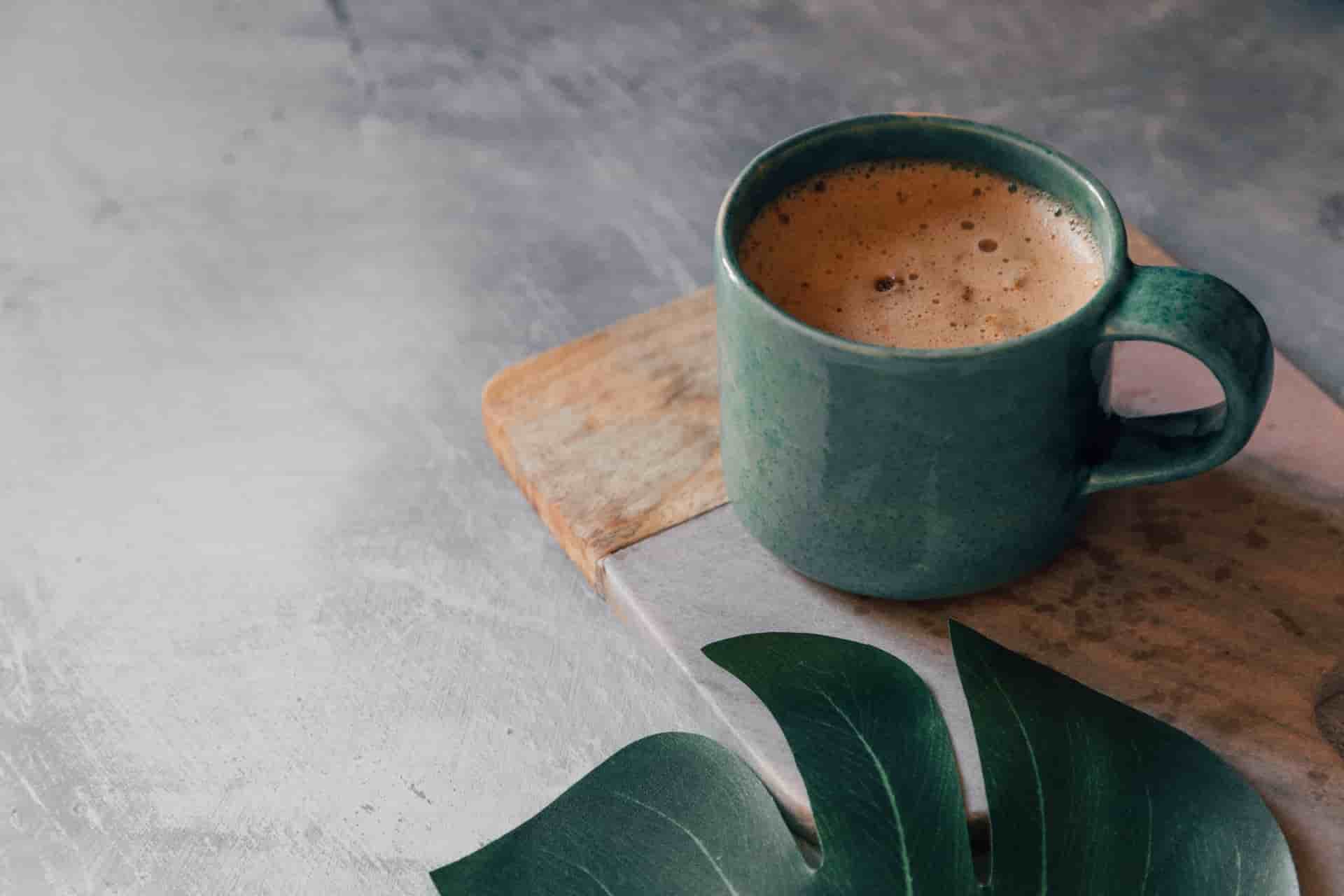While many of us enjoy our daily cup of joe, it’s crucial to understand that coffee’s effects on gallbladder health can be a double-edged sword.
On one hand, moderate coffee consumption is often linked to certain health benefits for the gallbladder.
However, for individuals who have gallstones, coffee might trigger discomfort or pain.
So, Is Coffee Bad For Your Gallbladder? Well, let’s investigate this a bit further.
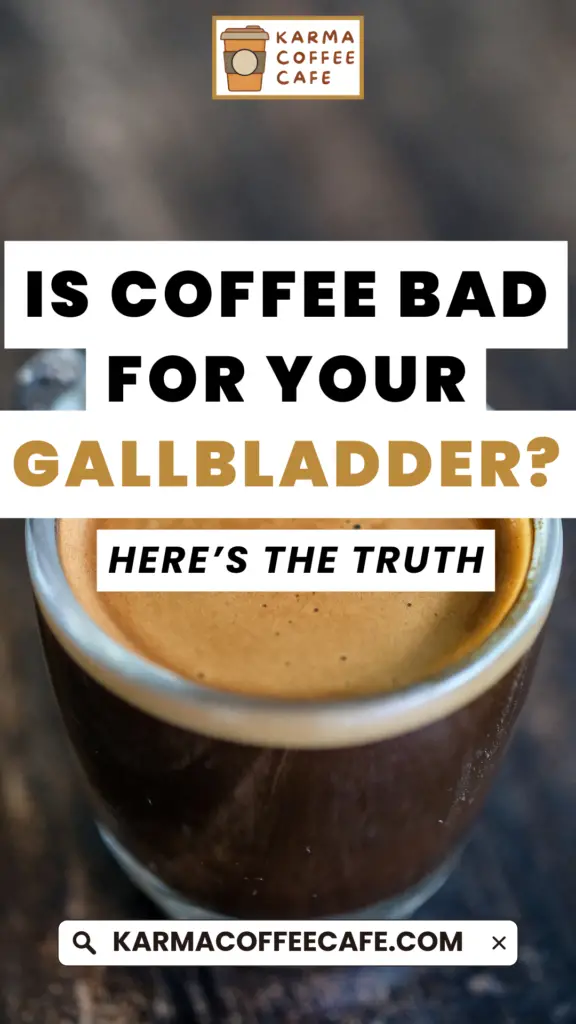
What Are Gallstones?
Gallstones are solidified accumulations of bile, found in the gallbladder, which is a small, pear-shaped organ situated just below the liver on the right side of the abdomen.
These stones are formed when the chemical balance of bile, a digestive liquid produced by the liver and stored in the gallbladder, is disrupted.
This imbalance might be due to too much cholesterol or bilirubin, or not enough bile salts.
The size of gallstones varies, ranging from tiny like a grain of sand to as large as a golf ball.
Factors such as obesity, rapid weight loss, and certain medical conditions, including cirrhosis, bile duct infections, and hemolytic anemias, can increase the risk of developing gallstones.
Is Coffee Bad For Your Gallbladder?
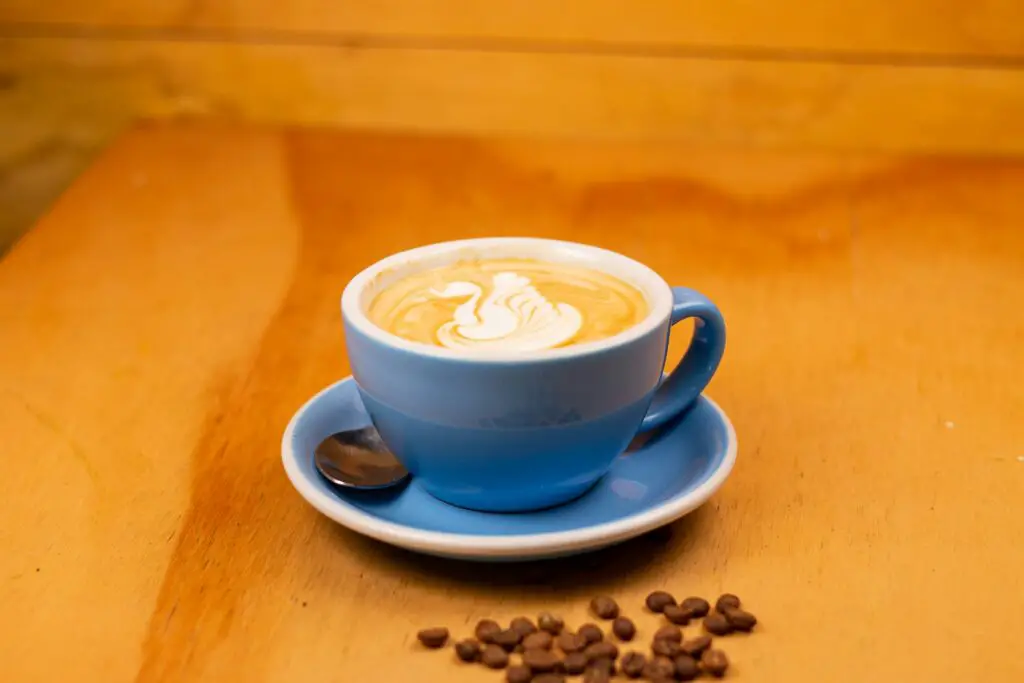
Caffeinated coffee has been linked in some research to a decreased likelihood of gallstone formation and symptomatic gallstone disease.
This may be due to caffeine’s ability to promote gallbladder contractions and lower cholesterol levels in bile, both of which are factors in reducing gallstone risk.
However, for those already suffering from gallstone disease, coffee may not be beneficial and could lead to increased abdominal discomfort, as it causes the gallbladder to contract, potentially aggravating existing conditions.
In cases of an inflamed gallbladder, it’s often recommended to avoid caffeine entirely.
Thus, the connection between coffee and gallbladder health is multifaceted and warrants a discussion with a healthcare provider for advice tailored to your specific situation.
What Are The Symptoms Of A Troubled Gallbladder?

When experiencing gallbladder issues, the symptoms can vary, but frequently include:
- Pain in the Upper Right Abdomen: This pain is often intense and may extend to the back or chest.
- Nausea and Vomiting: These symptoms are particularly common in cases of biliary colic or when the gallbladder is inflamed.
- Fever, Chills, and Jaundice: The presence of these symptoms could indicate more serious conditions like cholecystitis or a bile duct blockage.
- Changes in Urine and Stool: Dark urine and pale stools may signal issues with the gallbladder or bile ducts.
It’s crucial to recognize that symptoms of gallbladder problems can range from mild to severe and not everyone will experience all these symptoms.
If you’re encountering any of these signs, seeking medical advice is essential for proper diagnosis and treatment.
The 4 Stages Of A Gallbladder Disease
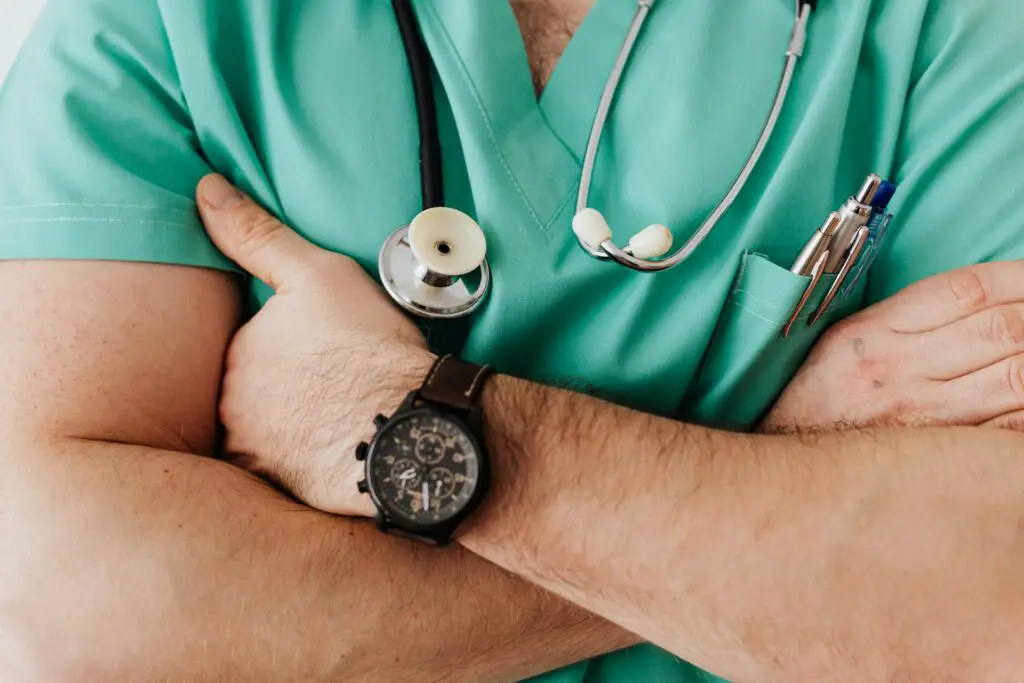
Gallbladder disease progresses through four distinct stages, each characterized by different symptoms and requiring specific treatments:
- Lithogenic State: This initial stage creates conditions conducive to gallstone formation. Gallstones, which are solid concretions, begin to form in the biliary tract, typically within the gallbladder.
- Asymptomatic Gallstone Stage: Here, gallstones exist but haven’t yet caused symptoms. These stones might be small enough to pass through the biliary tract or not cause significant blockage.
- Symptomatic Gallstone Stage: Patients start experiencing symptoms during this stage, primarily due to episodes of biliary colic or bile duct obstruction. The pain, often intense and dull, is usually felt in the epigastrium or upper right abdomen and may extend to the right shoulder. It commonly starts after eating and can last between one to five hours.
- Complicated Cholelithiasis: This advanced stage involves more severe symptoms and complications resulting from issues within the gallbladder or from gallstones causing blockages. Acute inflammation can occur, presenting with intense pain similar to biliary colic but more severe, often accompanied by nausea, vomiting, fever, and chills. This level of pain frequently leads patients to seek emergency medical care.
How Common Is Gallstones?
Gallstones are a prevalent health issue, affecting about 10 to 15 percent of the U.S. population, which translates to nearly 25 million people.
This high incidence is due to a range of risk factors such as gender (more common in females), age (particularly over 40), a family history of gallstones, obesity, rapid weight loss, and certain medical conditions like cirrhosis, diabetes, and specific blood disorders.
In Europe, the prevalence of gallstones is estimated to be between 6-22% of the population.
Interestingly, despite their prevalence, about 80% of individuals with gallstones do not experience any symptoms related to their presence.
Moreover, the prognosis for those with gallbladder disease is generally very good, as the mortality rate associated with this condition is quite low.
What Drinks Irritate The Gallbladder?
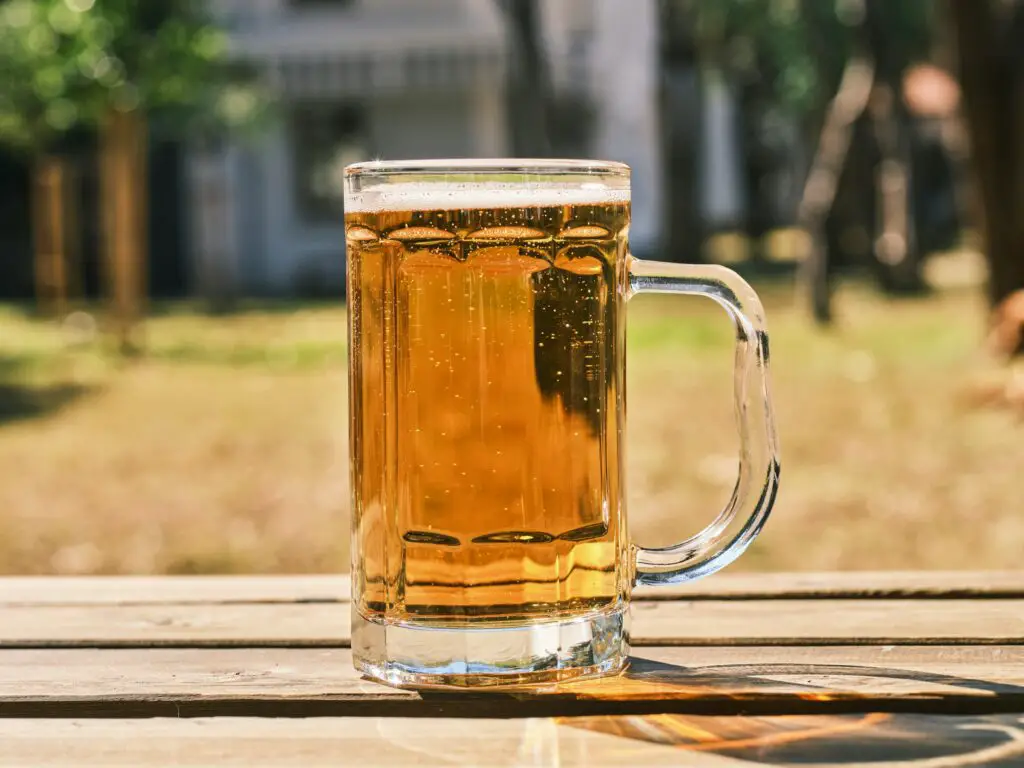
Certain beverages can aggravate the gallbladder, and they include:
Soda and Sugar-Sweetened Drinks
Studies have found a correlation between high consumption of soda and other sugary beverages and an increased incidence of gallbladder issues, including a heightened risk of gallbladder cancer.
Alcohol
While moderate alcohol intake might lower the risk of gallstone formation, excessive alcohol consumption can adversely affect liver health.
Alcohol can impede the gallbladder’s ability to empty, potentially leading to an increased risk of gallstones.
Caffeinated Tea and Soda
Unlike coffee, which has been linked to a reduced risk of gallstones, caffeinated teas, and sodas do not offer similar benefits for gallbladder health and may contribute to irritation or problems.
How To Prevent Gallstones?
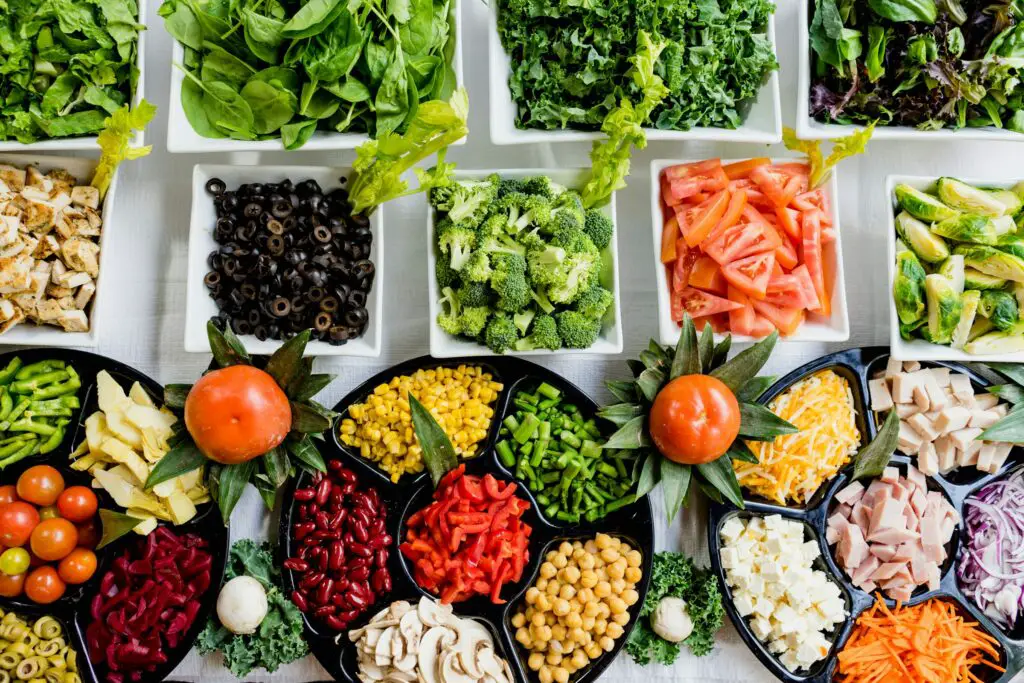
Preventing gallstones involves a combination of dietary choices and lifestyle modifications.
Here are some effective strategies:
- High-Fiber Foods: Incorporate plenty of fiber-rich foods like fruits, vegetables, beans, and whole grains into your diet. Fiber aids in digestion and can help reduce the risk of gallstones.
- Healthy Fats: Include sources of healthy fats, such as fish oil and olive oil, in your diet. These fats are beneficial for gallbladder health.
- Low-Fat Diet: Especially for individuals with steatorrhea, adhering to a low-fat diet can help prevent gallstone formation.
- Limit Saturated Fats: Reduce your intake of saturated fats found in foods like meat pies, sausages, and butter to lower the risk of gallstones.
- Weight Management: Aim for gradual weight loss and maintain a healthy weight through a balanced diet and regular exercise. Rapid weight loss can actually increase the risk of gallstones.
- Regular Meal Patterns: Eating at regular intervals and avoiding long periods of fasting can help in preventing gallstones.
- Herbs and Supplements: Certain herbs and supplements are believed to improve bile flow and reduce the risk of gallstones. However, always consult with a healthcare professional before starting any new supplement or herb.
Final Thoughts
The relationship between coffee and gallbladder health is complex and multifaceted.
While moderate coffee consumption has been associated with a lower risk of gallstone formation, it’s important to be cautious if you already have gallbladder issues, as coffee can sometimes exacerbate pain and discomfort.
As with many aspects of health and diet, individual responses can vary.
Therefore, it’s advisable to consult with a healthcare professional to understand how coffee consumption might specifically affect your gallbladder health, ensuring a balanced approach tailored to your personal health needs.


